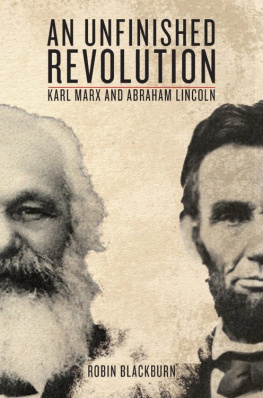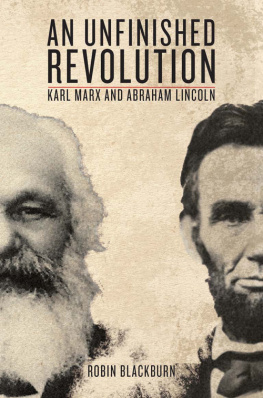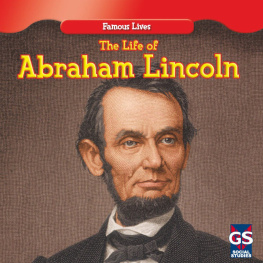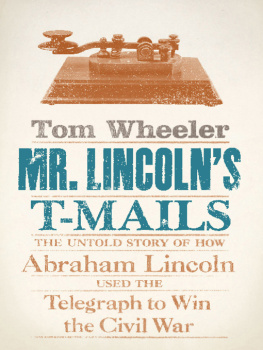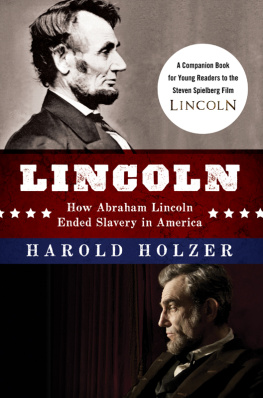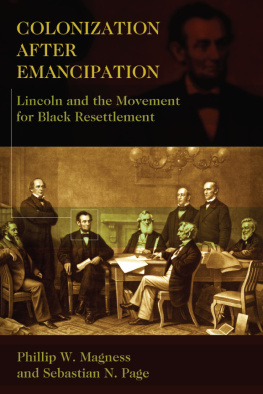Marx and Lincoln:
An Unfinished Revolution
Marx and Lincoln:
An Unfinished Revolution

Robin Blackburn

First published by Verso 2011
the collection Verso 2011
Introduction Robin Blackburn 2011
All rights reserved
The moral rights of the author have been asserted
1 3 5 7 9 10 8 6 4 2
Verso
UK: 6 Meard Street, London W1F 0EG
US: 20 Jay Street, Suite 1010, Brooklyn, NY 11201
www.versobooks.com
Verso is the imprint of New Left Books
eISBN: 978-1-84467-797-9
British Library Cataloguing in Publication Data
A catalogue record for this book is available from the British Library
Library of Congress Cataloging-in-Publication Data
A catalog record for this book is available from the Library of Congress
Typeset by MJ Gavan, Truro, Cornwall
Printed in the US by Maple Vail
Contents
Conclusion to Black and White
Thomas Fortune
Preface to the American Edition of The Condition of the Working-Class in England
Frederick Engels
Speeches at the Founding of the Industrial Workers of the World
Lucy Parsons
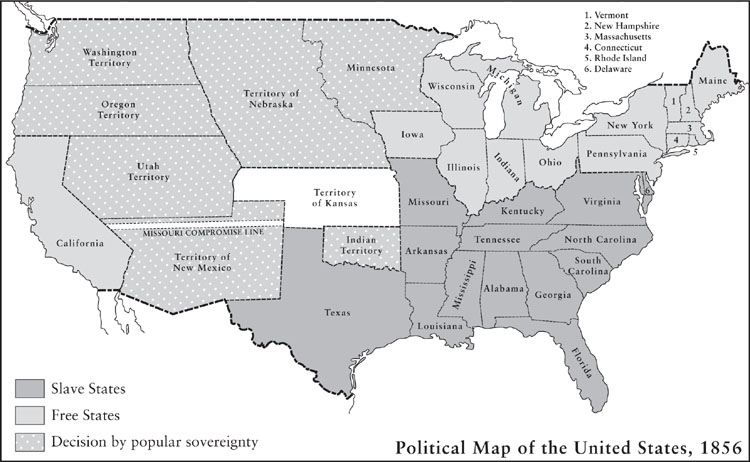
Karl Marx and Abraham Lincoln:
An Unfinished Revolution
In photographs Karl Marx and Abraham Lincoln both look the part of the respectable Victorian gentleman. But they were almost diametrically opposed in their attitude toward what was called at the time the social question. Lincoln happily represented railroad corporations as a lawyer. As a politician he was a champion of free wage labor. Karl Marx, on the other hand, was a declared foe of capitalism who insisted that wage labor was in fact wage slavery, since the worker was compelled by economic necessity to sell his defining human attributehis labor powerbecause if he did not, his family would soon face hunger and homelessness.
Of course Marxs critique of capitalism did not deny that it had progressive features, and Lincolns championing of the world of business did not extend to those whose profits stemmed directly from slaveholding. Each man placed a concept of unrewarded labor at the center of his political philosophy, and both opposed slavery on the grounds that it was intensively exploitative. Lincoln believed it to be his duty to defend the Union, which he saw as the momentous American experiment in representative democracy, by whatever means should prove necessary. Marx saw the democratic republic as the political form that would allow the working class to develop its capacity to lead society as a whole. He regarded US political institutions as a flawed early version of the republican ideal. With their corruption and humbug, US political institutions did not offer a faithful representation of US society. Indeed, too often they supplied a popular veneer to the rule of the wealthywith a
As a young man Marx had seriously considered moving to the United States, perhaps to Texas. He went so far as to write to the mayor of Trier, the town where he had been born, to request an Auswanderungschein, or emigration certificate. In the following year he wrote an article considering the ideas of the American National Reformers, whose comparatively modest original aimsthe distribution of 160 acres of public land to anyone willing to cultivate ithe recognized as justified and promising: We know that this movement strives for a result that, to be sure, would further the industrialism of modern bourgeois society, but that as an attack on land ownership especially under the existing conditions must drive it towards communism.
Subsequently Marx remained fascinated by events in the US, and for ten years1852 to 1861he became the London correspondent of one of its leading newspapers, the New York Daily Tribune. The invitation to write for the Tribune came from Charles Dana, its editor, who had met Marx in Cologne in 1848 when Marx was in charge of the Neue Rheinische Zeitung. Marx accepted Danas invitation, and for a decade this was his only paid employment. He contributed over 400 articles, 84 of which were published without a byline, as editorials. Although initially happy with the arrangement, Marx complained of the pay ($5 an article, later raised to $10), of the fact that he was not paid for pieces that were not published, and of the editorial mangling of what he had written. In one moment of particular vexationhe had received no fees for monthshe confided to his friend Frederick Engels that the whole arrangement was one of pure exploitation:
It is truly nauseating that one should be condemned to count it a blessing when taken aboard a blotting paper vendor such as this. To crush up bones, grind them and make them into a soup like [that given] to paupers in a workhousethat is the political work to which one is constrained in such large measure in a concern like this
On other occasions Marx expressed himself as pleased to find an outlet for his views and the results of his research into British social conditions. He wrote about the everyday problems of British workers, about the Indian mutiny, the Crimean War, Italian unification, French financial scandals, and Britains disgraceful Opium Wars.
For obvious reasons, the one topic Marx did not cover was events in the United States. In February 1861 the Tribune responded to the crisis by dropping all its foreign correspondents except Marx. However, the paper, finding room for few of his dispatches, soon ceased paying him. He accordingly found another outlet for his journalism, the Viennese paper Die Presse, which, unlike the Tribune, expected him to write about the extraordinary conflict unfolding in North America; most of the longer articles reprinted in this book first appeared in Die Presse.
Abraham Lincoln had a rather more unalloyed experience of exploitation as a young man, since he worked for no pay on his Marx obtained a doctorate from one of Germanys leading universities; Lincoln had only one year of formal education. Acquiring a license to practice law required no academic credential, but simply a judge willing to swear in the candidate and vouch that he was of good character. Working for a law firm was itself an education, one that evidently allowed Lincoln to hone his skills as a reasoner and advocate. His legal business prospered, and he came to embody the social mobility that was linked to the celebration of free labor. As he was first a Whig and later a Republican, it is likely that he read quite a few of the articles Marx wrote for the Tribune, signed or otherwise, since this paper was favored by those interested in reform and the fate of the Republican Party. Marx was probably unaware of Lincoln, a one-term representative from Illinois, until the later 1850s, when Lincoln shot to prominence because of his debates with Stephen Douglas, as the two men contended to become senator for Illinois. Lincoln was nine years older than Marx; even so, it is still a little strange to read Marxs affectionate references to him as the old man in the mid-1860s.
Marx and Lincoln both saw slavery as a menace to the spirit of republican institutions. But Lincoln believed that the genius of the Constitution could cage and contain the unfortunate slaveholders until such time as it might be possible to wind up slavery in some gradual and compensated manner. Marx saw the progressive potential of the republic in a different light. Its institutions, however flawed, as least allowed the partisans of revolutionary change openly to canvass the need for organization against capitalism and expropriation of the slaveholders.
Next page
